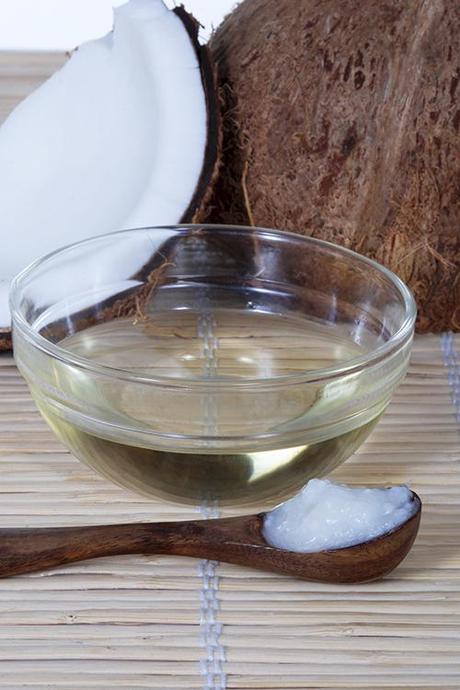
Coconut Dreams © lynette sheppard
Enjoy this guest post from down under authored by fabulous health blogger Justine Vari. I personally love coconut oil and not just because I live in Hawaii. I knew it was healthy but now I know why!
The benefits of using coconut oil for cooking (and you may lose a few kilos on the side)
If you are looking to try something different in the kitchen, give coconut oil a go! It’s great to cook with because it has excellent flavour, a stable chemical structure and many health benefits.
The coconut tree or palm has been referred to as the Tree of Life in many tropical countries because of its ability to heal many common ailments, from influenza and high cholesterol to diabetes and obesity. Coconut oil’s anti-viral properties have been known to provide relief for HIV patients and people suffering from herpes, and its anti-bacterial properties ease throat infections and candida. Also, the saturated fats in coconut oil are supportive of kidney function and maintaining thyroid function, which helps to prevent symptoms of hypothyroidism such as tiredness and weight gain.
Coconut oil is the highest source of saturated fats and contains the most medium-chain fats in any vegetarian food source. Lauric acid makes up 50% of coconut oil and is essential in maintaining the body’s immune system. The only other source of lauric acid that can compare to coconut oil is breast milk. Other components of coconut oil include myristic acid, which is used by the body to stabilise proteins used in the immune system, and anti- viral capric acid.

Coconut Oil
Despite the propaganda from the last few decades, including both saturated and unsaturated fat in your diet is essential for health and can promote weight loss. The ‘bad’ fat that you need to watch out for is trans-fatty acids, which is a refined form of fat that has been altered by hydrogenation. This process changes the structure of liquid vegetable oils to make them solid at room temperature, like shortening for cooking and margarine. Trans fats are damaging in two ways – they raise the levels of bad LDL, which increase the risk of heart disease, and decrease the levels of protective HDL cholesterol.
Coconut oil is beneficial to health because its fats provide an important energy source for the body and helps to maintain the structure and fluidity of cell membranes. Short and medium chain fatty acids have a lower caloric value and are easily broken down by the body for absorption. Because of this accessibility to energy, it raises the metabolism of the body and provides a sense of satiety after eating.
Fats also facilitate the absorption of various vitamins and minerals such as calcium and magnesium, and help regulate blood sugar levels to fight diabetes. Coconut oil’s anti-inflammatory properties are great for arthritis and it also contains antioxidants that protect the body from oxidative stress.
Because of coconut oil’s high saturated fat content, it has a stable chemical composition and is resistant to high heats and will only oxidise at 177⁰C, making it great for cooking. Coconut oil is easy to digest and soothes stomach and digestive problems such as irritable bowel syndrome. Replace your regular oil with coconut oil when cooking stir fries, meat and baked goods.
Coconut oil is also great as a moisturiser for the skin and hair and has been used medicinally for burns and constipation.
Justine Vari is an enthusiastic researcher and writer of health and fitness, with a keen interest in whole foods and optimum nutrition. She hopes to one day be a part of the movement that eradicates lifestyle-related diseases. For more posts from Justine please visit http://www.health.com.au/blog.

